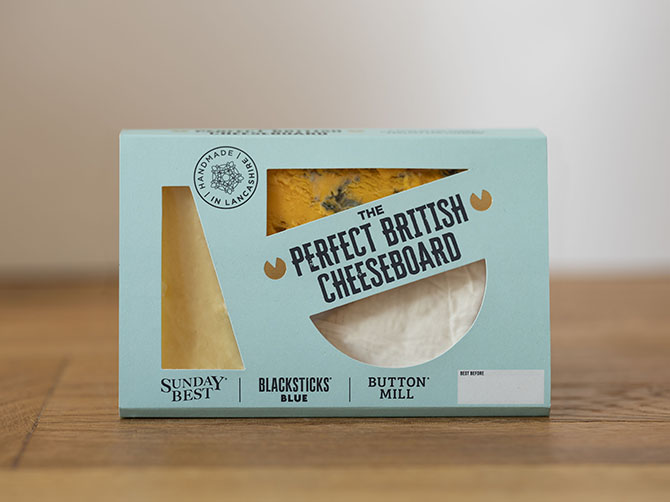The packaging is key

Photo courtesy of Butler's Farmhouse Cheeses
Communication is never more important now that we are all working remotely (well, some of us are). We rely on things like QR codes to check into venues so the app can track and trace us, and some dairy marketers are also using it on their packaging to communicate further with consumers. After all, grocery shopping is something that we are all doing, either remotely or in-person.
Take Yeo Valley yogurts, which launched a Moo-R code (QR code) on its British packaging to offer consumers product information, brand content and future promotions. It adjusts based on the product, the customer location and time of day, the company says. Now that we know how to work the QR codes, it seems a timely addition to the packaging.
Meanwhile, the quest to make recyclable and compostable packages continues. Plastic packaging accounts for 44% of plastic used in the UK, but 67% of plastic waste, and over two million tonnes of plastic packaging is used each year, according to the British government.
Thinking on that, Butlers Farmhouse Cheeses has moved into fully recyclable cheese packaging. The company says it is the first company in the UK to have a fully recyclable cheeseboard, which is surely something worth having. The package is single polymer plastic, including the label and barrier layer. The company is also investigating other natural materials for its packages, such as seaweed.
It stands to reason, with the 2022 plastic tax levy looming into view as we begin to head out of 2020 in the UK. The new tax will be on the production and import of plastic packaging with less than 30 per cent recycled content.
However, industry expert Ian Schofield (known for his plastics work with the UK’s Iceland supermarket) notes: “We know that the recycling infrastructure isn’t where it needs to be today, but we didn’t allow this to stop us in our tracks. Doing this now is the right thing to do – the waste streams will follow.”
If you build it, they will come.
- Suzanne Christiansen, editor, Dairy Industries International.
Keep in touch via email: [email protected]
Twitter: @dairyindustries or LinkedIn: Dairy Industries International magazine.



